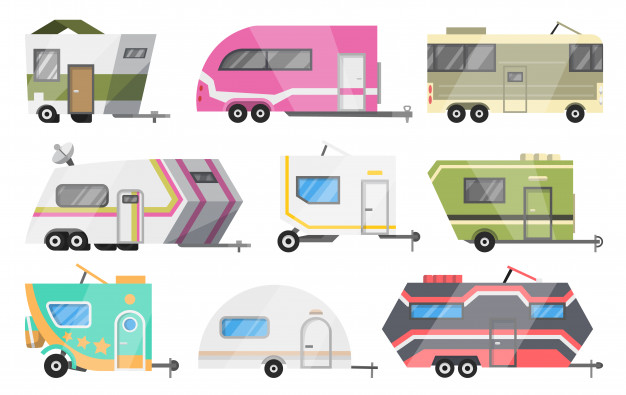
It can be pretty appealing to drive on the road with your living space behind you. However, this experience can also be frightening considering that a travel trailer is a big investment you can make.
While automotive liability insurance can cover various costs associated with damages to your travel trailer, there is no legal requirement for you to buy travel trailer insurance. But you can find some optional insurance policies for recreational vehicles that cover the key aspects of your travel trailer.
Travel trailer insurance coverage
Travel trailer insurance coverage requirements vary between states and insurance companies. In most cases, most automotive insurance policies can extend your insured vehicle’s coverage to a travel trailer that you tow at the time of an accident.
Also, for the automotive insurance to cover your travel trailer, it may require you to own it and be registered in your name. However, borrowed or rented travel trailers may not legally need insurance coverage under your current automotive policy.
In other words, the coverage extended to the travel trailer under your current vehicle’s policy is covered in your vehicle’s liability insurance.
With bodily injury, the insurance policy will pay for expenses connected to third-party injuries. But for property damage liability, the insurance will pair to repair the damage inflicted on the property of third-parties. As you can see, neither of these situations can help to cover the costs of damage that your trailer suffers.
Type of travel trailers and campers eligible for insurance
To help you figure out the type of travel trailer insurance you require, you should first understand what type of travel trailer you own. Campgrounds, insurance companies, and some recreational vehicle manufacturers may categorize travel trailers differently.
For example, Class C RVs are considered as a recreational vehicle that is not motorized. Since recreational vehicles are usually non-motorized, they are supposed to be towed behind a truck or a vehicle.
Quite often, this class C category can also be classified to consist of campers and trailers. This is what you need to know about travel trailer insurance based on the below categories of campers and trailers:
Utility or cargo trailer
This is perhaps one of the smallest towable trailers you can find out there. It’s usually not designed to be occupied by people, and they are often suitable for a single horse or even small cargo.
Horse trailer or toy hauler
This travel trailer is larger than the utility trailer. They are also not designed for human occupancy, rather, these trailers are suitable for transporting ATVs, horses, and other large cargo.
Mounted truck camper
This type of travel trailer is about 12 to 23 feet long when you open them and have collapsible sidewalls. As the name suggests, they look similar to a tent both for having collapsible features and in the materials they use to make them. While they are portable, they don’t have bathrooms.
Pop-up tent trailer
This type of travel trailer is about 12 to 23 feet long when you open them and have collapsible sidewalls. As the name suggests, they look similar to a tent both for having collapsible features and in the materials they use to make them. While they are portable, they don’t have bathrooms.
Fifth wheels
These travel trailers are quite large and they get their name from the trailer’s design. Fifth wheels have a raised front part that is elevated off the ground and an extension that goes over the bed of the vehicle towing it.
This raised section provides an extra living space that can be used as a private bedroom. Fifth wheels are usually between 21 and 38 feet long and have several slideout areas.
Conventional trailers
Conventional travel trailers are between 12 and 40 feet long and they usually have a bathroom, sleeping area, and dining space. Many campgrounds or insurance companies refer to conventional trailers as bumper-pull trailers or travel trailers.
Where you can get travel trailer insurance
When you decide that you need to protect your travel trailer and its content, it can be tricky to determine where to start. After all, many insurance companies are offering a wide range of coverage options at various costs.
But you need to understand that not all insurance firms are the same, so you should make sure that your hard-earned money goes to the insurance company that offers quality services.
Even better, you should be sure that you can count on the insurance company, especially when you try to make a claim. Therefore, the insurance company should have excellent customer service, easy phone accessibility, and they should have multiple locations where you can speak to their staff in person.
Once you have come up with the key aspects that you want from an insurance company, you can start shopping around. Now, you can ask your family and friends about the best insurance company they have previously used.
You can also check the RV forums and boards to see what insurers your friends use. Customer reviews can also give you a good idea about the experiences of the previous customers with a particular insurance company, especially when a claim is to be made.
Whether you choose to look for information from the financial organizations or consumer advocate groups, your goals should always be to get the company that can give you the best value for your money.












